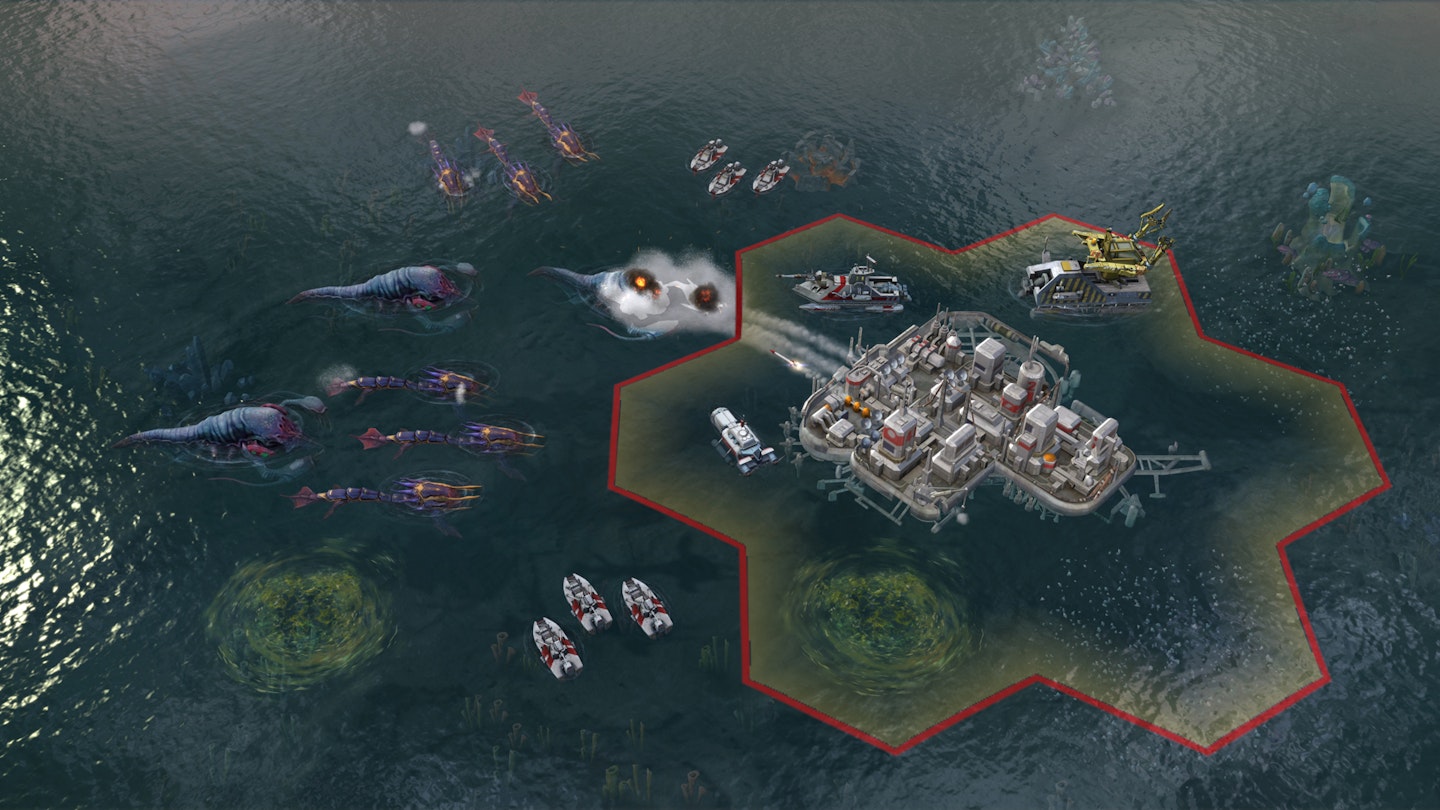Firaxis is one of the only game developers in existence that still remembers what a real expansion is. In the era of bitesize downloadable content, an expansion - a real one - isn’t a couple of missions tacked onto the end of a game’s story, or a map pack, or a couple of new guns to shoot and cars to drive. An expansion is a redefinition of how a game feels to play; an improvement, a reshuffle and a rethink of how a game feels at your fingertips. In the best expansions, that also comes packed with the cosmetic treats and additional goodies you want - new factions, units, a new place to explore, and even the odd new gun or two.
*Rising Tide *doesn’t fix Beyond Earth’s main problem of replayability, though, which has been its issue from get-go. This has always been a strong strategy game in its own right, but stacks up as a comparatively weak Civilization entry, without the flair of its immediate predecessor. However, this first expansion goes a fair way toward bettering the best bits of the original game: the sense of discovery, of alien wonder, and of experimenting with the tech web, the game’s method of letting you choose how you want your civilization to progress forward. All of this while simultaneoulsy ironing out its creases and un-quirking the peculiarities of its diplomacy system a little.
As in Beyond Earth, you’re in charge of mankind’s second chance, and *Rising Tide *adds several interesting new mechanics that let you experiment with brand new tactics. The first is a smart blend of the game’s affinities system, which greatly diversifies your options when creating your own personal tribe. Now, instead of simply having to specialise with one of these three affinities - purity, harmony and supremacy - you’re able to choose hybrids of each, which open up a handful of new units and buildings, and make progressing through a campaign feel more organic.
The other most immediately obvious addition is that of aquatic cities - giant metropolises that you’re able to move around the seas - to chase resources and expand your control on the map. The cities work well as an added layer to Beyond Earth’s rich texture, completing your grasp on land, in the suborbital layer and now at sea. It isn’t a complete overhaul of how you’ll treat city development, but it’s another head-scratcher that adds depth to Rising Tide’s plethora of options.
Diplomacy has also been improved pretty dramatically, adding the ability to customise your leaders’ traits in ways that can greatly affect the outcome of certain decisions. By adding a new currency called Diplomatic Capital, you can spend points adding personality traits to your chosen leader, which add new perks that add even more depth to sculpting a leader. On top of this, the new Respect and Fear levels give you a defined method of tracking AI civilizations’ feelings toward you, which reduces the occurrence of the sporadic decisions that made previous Civilizations feel, at times, random.
Rising Tide doesn’t revolutionise the vanilla game enough to reach the superlative heights of its predecessor, Civilization V, but it does retain that sense of being a true expansion like few other games manage these days. It packs enough new interesting mechanics, intriguing hybrid affinity choices and great looking new playable biomes to be a worthy time-sink for at least two or three full campaigns, even if it doesn’t fully fix the key issue of variation from game to game.
